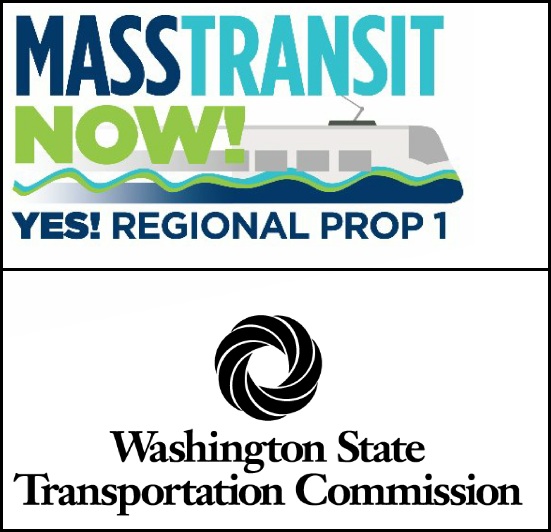Employee of political advocacy group should not be on the Washington State Transportation Commission
In an effort to influence the direction of billions in transportation spending, Governor Jay Inslee appointed and is seeking to confirm Hester Serebrin, an employee of the aggressive political advocacy group Transportation Choices Coalition, to the powerful Washington State Transportation Commission.
The Transportation Choices Coalition is a political interest group that receives public money and represents a narrow agenda, which makes Ms. Serebrin a controversial pick for a key commission that is supposed to serve the general public interest. The Governor’s choice to appoint a Transportation Choices Coalition employee to a state commission is an inappropriate arrangement that does not benefit the public, but rather appears to serve the interest of this publicly-funded transit advocacy group.
The group led the Mass Transit Now! campaign, which pushed hard for the passage of the $54 billion-dollar Sound Transit 3 (ST3) tax package. The measure increased the sales tax to over 10% in Seattle, tripled car tab fees, and imposed a controversial property tax to primarily subsidize light rail. This has created a tremendous, regressive burden on families all across the region. Ms. Serebrin openly supported ST3 as well as Metro’s Prop 1 (which failed).
In her response to the appointment, Ms. Serebrin said, “Washington state needs an affordable, reliable and safe transportation system to meet the needs of all users.” Yet in her role at Transportation Choices Coalition, Ms. Serebrin advocates primarily “for policies that support pedestrians, bicyclists and bus riders” – clearly not all users.
Ms. Serebrin’s employment at Transportation Choices Coalition presents a clear conflict of interest for the Washington State Transportation Commission, which is typically composed of professionals and engineers who are not connected to political interest groups or campaigns. If the Governor wants narrow interests represented on the Commission, then he would need to balance Ms. Serebrin’s focus with people who have other narrow agendas. Otherwise, this seems inconsistent with the way the commission has been set up, with commissioners who are to take a more global view on transportation.
This gubernatorial appointment can be reversed, since Ms. Serebrin was not confirmed during the 2016 legislative session. Now that the election is over, lawmakers should reconsider whether to put a political advocate on this important state commission.






